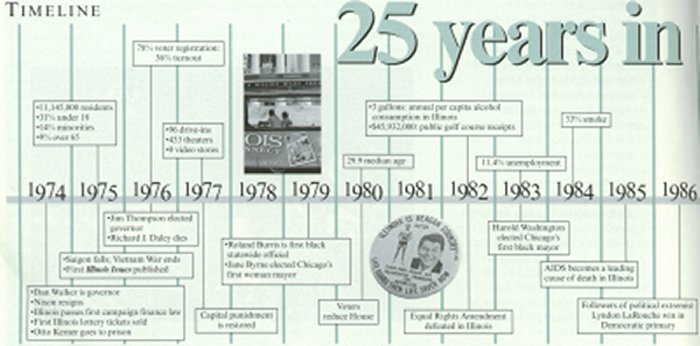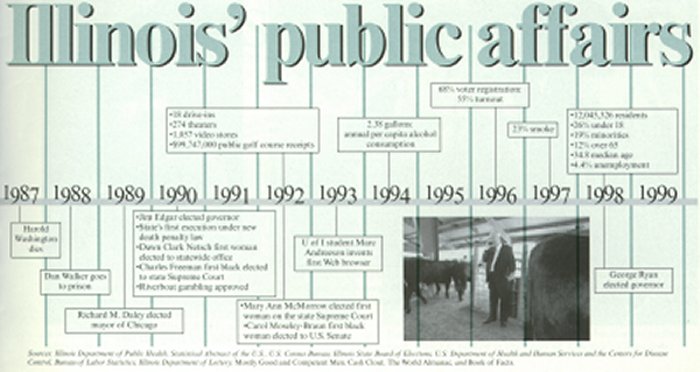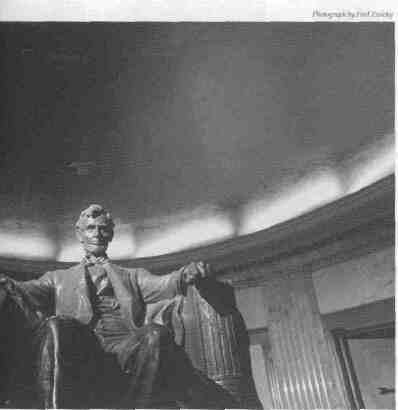

OUR 25TH ANNIVERSARY:
Why we are focusing on the people of Illinois
This month we begin our public observance of Illinois Issues' 25th anniversary. We could think of no better way to celebrate than to do what we do best: analyze issues and policies from a fresh perspective.
First we asked ourselves a question. What do Illinoisans think are the top issues facing the state?
Perhaps these might be on your list: the need for more accountability from our educational system, a deteriorating transportation system, not enough economic development, a growing underclass, sprawl and a health system that should meet more patient needs while containing costs. And, of course, a way to raise the revenue to do all the things we want to do.
|
The anniversary series |
Those were some of the issues mentioned in the final report of the Task Force on the Future of Illinois. It might surprise you to learn that this wasn't a recent list compiled to prepare for the next century. It was part of a series of recommendations made some 20 years ago, an effort to get the state in better shape by 1999.
What that suggests is that the big issues never really go away and that every generation of leaders grapples with them in the context of their own times. Indeed, we asked our readers in 1985, and then again in 1995, about the top issues facing the state, and the lists were almost identical.
So as we planned for our series of articles, we chose to do more than merely recap the issues of the past quarter century. It was tempting, lest you think we forgot something, to try to consider every important political event and policy initiative that shaped Illinois government. For we covered each of them, from the fall of Dan Walker to the current welfare-to-work debate.
We decided instead to focus on people over policy, and to analyze what impact public policy and governmental initiatives have had on Illinoisans during our magazine's existence. Issues may not change, but individuals' lives certainly do, for better and for worse. That is why our next three

|

|
16 / October 1999 Illinois Issues

|
series of articles are about children, the vulnerable and people at work. Such an approach also allows us to peer into the near future to see where we're heading. It's an ambitious undertaking. I'm reminded of what the authors of the Task Force on the Future of Illinois wrote two decades ago: "It is important to envision a new kind of future, one of increased responsibility, of willingness to plan the use of limited resources, a future of advanced technology and commitment to human beings" (emphasis added). |
"We are describing a mature state, no longer a growing adolescent, hut an adult with the will and spirit to do the very best within its limitations"
I hope you find our series interesting, without being too nostalgic, and thought-provoking, without being too harsh or too easy on those who governed us in the past 25 years. And even though you already know the issues, I trust you will learn something from our reports.
Ed Wojcicki, publisher
Sources: Illinois Department of Public Health. Statistical Abstract of the U.S., U.S. Census Bureau. Illinois Stale Board of Elections, U.S. Department of Health and Human Services and the Centers for Disease Control, Bureau of Labor Statistics, Illinois Department of Lottery, Mostly Good and Competent Men, Cash Clout, The World Almanac, and Book of Facts.
Illinois Issues October 1999 / 17